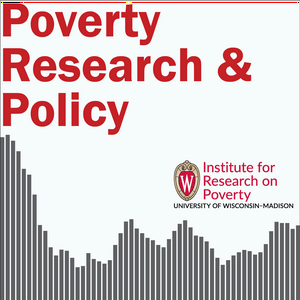Unconditional cash transfers programs are being piloted across the country. For this episode, Dr. Luke Shaefer shares his work with RX Kids—the nation's first-ever, community-wide, prenatal and infant cash prescription program, which is taking place in Michigan. This innovative model uses a mix of TANF funds in combination with philanthropic dollars to offer support to all expecting and new moms in several low-income Michigan communities.
Luke Shaefer is the Hermann and Amalie Kohn Professor of Social Justice and Social Policy at the Gerald R. Ford School of Public Policy at the University of Michigan. He is also a Professor of Social Work, and the Director of Poverty Solutions, also at the University of Michigan. In addition, he is the co-director of RX Kids and is also an IRP Affiliate.


